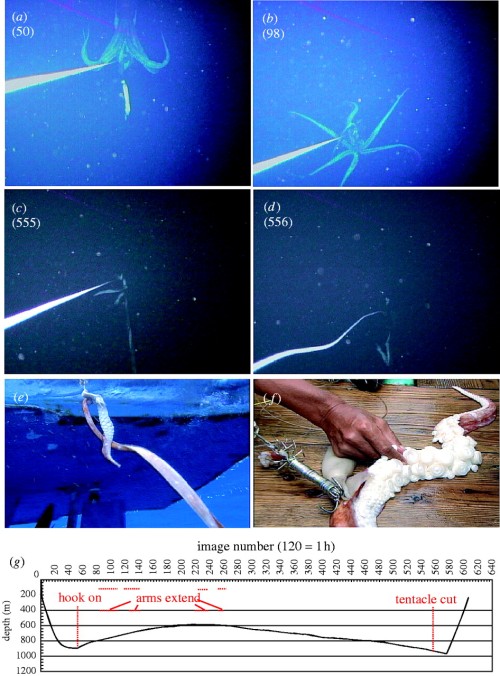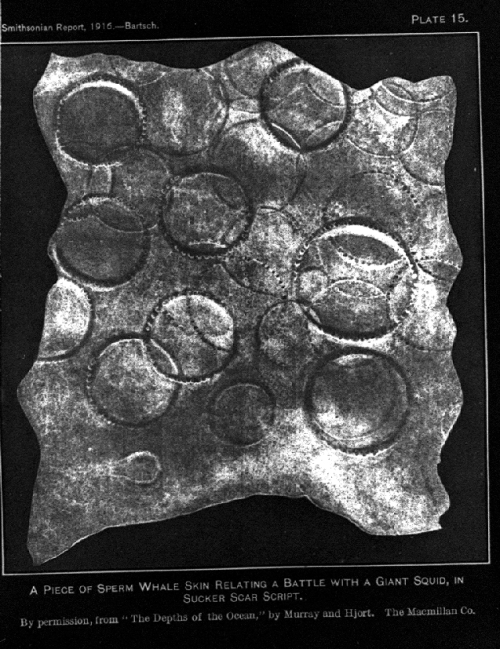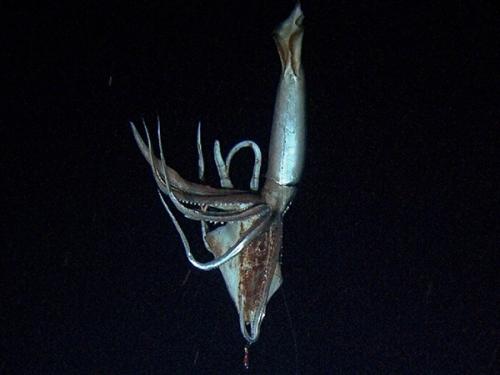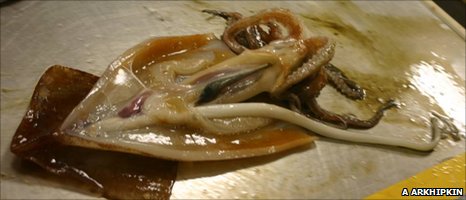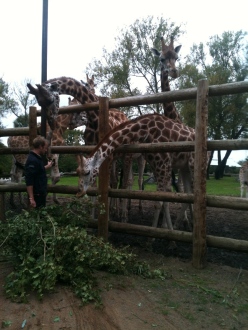Deep-sea giant squid (Architeuthis) remain one of the ocean’s most charismatic zoological mysteries. While there are plenty of specimens in museums around the world, little is known about their behaviour. Only recently have fleeting glimpses been captured of these creatures in their natural habitat; a 2005 paper (http://rspb.royalsocietypublishing.org/content/272/1581/2583.full) in Proceedings of the Royal Society B described the first ever wild observations of a live giant squid. The author’s photographs showed a huge squid actively hunting at 900m below the surface and they even managed to recover a tentacle that snagged on the bait line (see panels ‘e’ and ‘f’ in the figure).
We also know about the predator-prey interaction between sperm whales and giant squid from the sharp-sucker scars often seen on whale skin and stomach contents (squid beaks are indigestible making them a useful clue to the diet of sperm whales).
Earlier this year, footage taken by a manned submersible was broadcast showing a giant squid 1000m deep in the North Pacific. The footage was captured using near-infrared light (using invisible to humans and squid) since giant squid avoid the bright white light used in conventional filming- perhaps something to do with those enormous eyes? (have a look here: http://www.eeb.yale.edu/ugrad/eeb171pdfs/sa-246-1982.pdf)
See clips from the video at http://www.youtube.com/watch?v=1KN5N1QDaRQ
(picture credit: NHK/NEP/Discovery Channel via Reuters)
As an aside, it’s worth taking a look at this report on the unusual mating behaviour of giant squid – it turns out that male squid giant inject spermatophores directly into wounds that they form on the tentacles of a female:
(http://www.nature.com/nature/journal/v389/n6652/full/389683a0.html)
More recently a somewhat alarming article showed how male squid overcome the challenges of mating at great depths using a ‘super squid sex organ’ – see the long white tubular structure in the picture below.
(http://news.bbc.co.uk/earth/hi/earth_news/newsid_8792000/8792008.stm)

